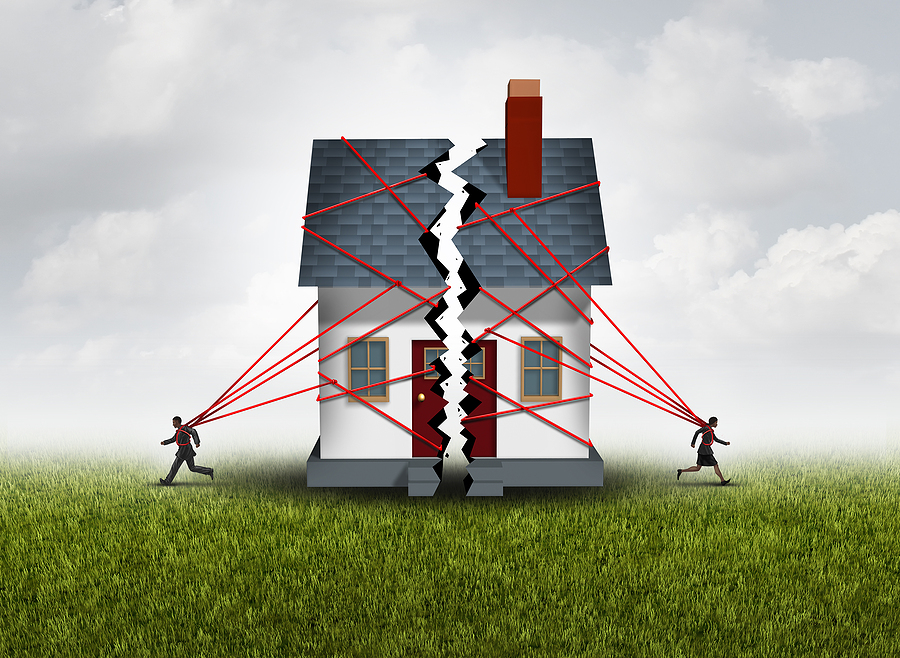Divorce is one of life’s biggest curveballs.
You went into marriage with hopes and dreams, not spreadsheets and legal battles. But here you are, and one of the toughest questions looming is: who keeps the house?
Splitting up possessions is never easy, and your home holds a special kind of weight. It’s not just bricks and mortar; it’s where you raised a family, made memories, and envisioned your future. Now, that future is shifting, and the house is caught in the crossfire.
So, how on earth do they decide who gets to stay? Here’s a breakdown of the factors that often come into play:
Community Property Laws
In many states, there’s this thing called “community property.” Basically, it means everything you and your spouse acquired during the marriage is considered jointly owned. When it comes to the house, this usually means one person has to “buy out” your soon to be other half to keep it.
Think of it like splitting a pizza – ideally, you both get an equal slice.
But who pays for the pizza, and can you even stomach another bite? That’s where things get messy and need legal help.
Emotional Ties
Divorce proceedings can feel like an emotional hurricane. But besides that storm, sometimes the house becomes an anchor.
If you have kids, the parent with primary custody often has a stronger case for keeping the house. Kids need stability, and familiar surroundings can help during such a major life change.
Additionally, if the house has deep sentimental value – maybe it’s been in your family for generations – that emotional connection might sway the decision in your favor.
However, judges try to be practical, so sentiment alone won’t always win the day.
Affordability
Owning a house isn’t cheap. Beyond the mortgage, there are taxes, insurance, repairs… the costs pile up faster than you can say “home improvement nightmare.” Even if you desperately want the house, can you realistically handle the financial burden alone?
If the numbers don’t add up, clinging to the house could backfire.
Getting stuck with a money pit you can’t afford won’t do anyone any good. Sometimes, the more sensible path is to sell and start fresh elsewhere.
Selling the House
If you and your ex simply can’t find a compromise, selling comes into play.
It might feel like admitting defeat or erasing a part of your history, but there are upsides too. You split the proceeds (after the mortgage is paid, of course), and that cash can be the down payment on a new place that’s truly yours.
Remember, starting over financially can be empowering. A smaller home, even a rental, might be a better fit for your single-income budget and give you the breathing room you need.
A Few More Things to Know About Who Gets the House
- Think Long Term: Is this house really where you see yourself in 5 years? Or are you holding onto it because letting go feels like giving up too much? Sometimes, a clean break is the best way to rebuild a happy future.
- Prenuptial Agreements: If you had one of these (kudos for being organized!), it might outline exactly what happens to the house in case of divorce. That simplifies things…in theory, at least.
- Mediation vs. Court Battle: Can you and your ex talk this through with a mediator instead of lawyers? It often saves money and heartache. But if tensions are sky-high, getting the courts involved might be unavoidable.
This Isn’t a DIY Situation. Get Help!
Divorce is a time when you need someone in your corner who understands the complexities – not just the laws, but the emotional roller coaster you’re on.
A good divorce lawyer will be your strategist, helping you weigh the practicalities against your long-term well-being.
If you’re facing divorce in the Albuquerque area, The Law Office of Anthony Griego, LLC gets it. We handle divorce cases with both legal expertise and human compassion. Let’s figure out the best way to move forward, not just with who gets the house, but with building a future you can thrive in.
Disclaimer: The information provided on this blog is intended for general informational purposes only and does not constitute legal advice. Laws and regulations are complex and subject to change. As such, it is imperative to consult with a licensed attorney regarding your specific legal situation. No action should be taken in reliance on the information contained on this blog.

